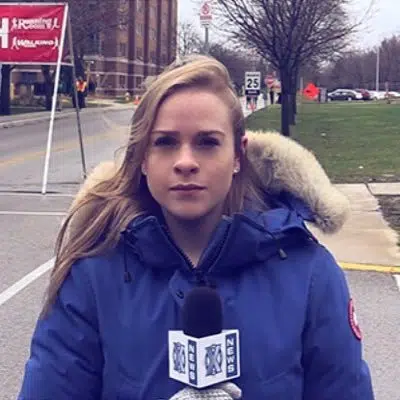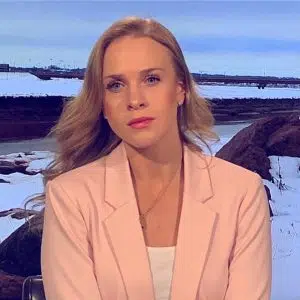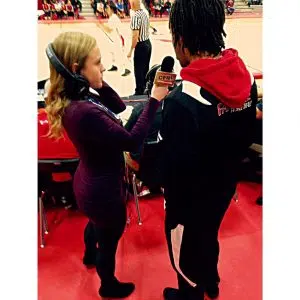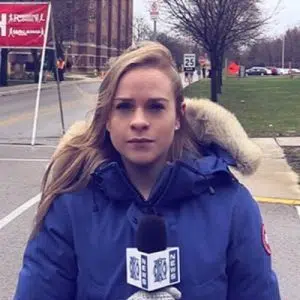Journalism is an essential service during the COVID-19 pandemic. Most news stations have been heavily affected during this time but are still producing stories.
Fanshawe Alumni Kate Walker works as a Videographer for CTV. She says her overall work schedule hasn’t changed a lot, but she is working from home.
“So, every morning, we still have our conference call where we all call in, we pitch your ideas for the day. Then we have a producer call us back and let us know what our assignment is,” She shared. “So, from there, you would still set up your interviews the same way that we usually would. But now what kind of interview are we going to be doing? Are we going to be doing a FaceTime interview? Are we going to be doing a Skype interview? there are some people that still feel comfortable meeting face to face while keeping that distance. But I think for a lot of journalists, we’re used to just going out on the street and talking to people”
Walker also explained she never thought she’d see the day where she works from home but the biggest struggle is the interviews.
“We’re used to going out and doing in person interviews every single day and we’re now transitioning to FaceTime or Skype interviews… and even in person when we are conversing with people, just making sure that we’re keeping that six feet of distance, whether it’s using our mic extenders or just having to come up with unique ways to still tell the story.”
Kate Walker is a graduate of Fanshawe’s broadcast journalism program and Western for Media, information and techno culture. She was awarded the Bayside Broadcasting corporation Newscaster of the year award during her time at Fanshawe.
She says it’s important to come up with different angles to cover the pandemic as there are so many different aspects to it.
“We’re hearing a lot of the negative side of things but I think it’s also important to, to balance out the good that’s also coming from this as
well. We’re hearing about a lot of businesses who are giving back to the community or vice versa, the community is giving back to businesses who have had to close their doors.”
During the Pandemic, the medias COVID-19 coverage has had many people accusing media of overreacting and not providing all of the information. This has resulted in people not taking the situation as serious as it should be taken.
“It’s not fake news. We’re gathering facts and we’re talking to real people. We’re talking to health professionals. And we’ve always been taught to do that by professors or by our bosses to find, you know, credible sources who are giving us real information, regardless if it’s a pandemic or if it’s just a regular news story,” She shared. “To gather those sources to back up what we’re saying so that the public does feel informed in that, like I mentioned, we’re separating panic preparation and we’re really just trying to inform people, not worry them.”
Media plays an essential part in combating the pandemic but many aren’t taking the warnings and concerns seriously. Journalism is an essential service during this time to provide the public with facts, not scare them.







